If the only black and brown people you interact with in your life are those who are in positions of service to you, you have work to do.
[Not to say that if you have black and brown people in leadership over you or as equals in the spaces you inhabit that you are not racist – just like being married to a black or brown person or having children who are not the same colour as you does not automatically magically make all the racism disappear – but it is a lot more likely if none of your lived experiences echo the changes you might be working on in your mind.]
We need to do away with Racial Isolation
The idea is not new to me but this phrase which i encountered in this article [White Folks as Collateral Damage – exploring the irony of racial inequalit by Tim Wise] helps make it even more clear.
Think about it – if the only black and brown people are those in service to you [fill your car with petrol, pack your groceries, clean your house, tend your garden] then you will likely end up with feelings of Superiority. Because your environment screams that message at you every day. The fact that those – and other – much needed jobs are looked down upon as “less than” in our weird hierarchy of structure simply adds to this problem. And if you introduce children to that environment, then they won’t need to be taught a word of racism as it is being modeled to them, day in and day out.
One of the most strangest parts of apartheid, to me, was how many white people saw black people as less than human and yet had no problem entrusting them with the raising of their children. Talk about an oxy-moron [with the emphasis on the moron part]. Surely that speaks of a disconnect between the mental and physical space?
It may be time to move
If you, as a white person, are serious at all about seeing South Africa move forward as a country, then this has to become a priority.
i mentioned it in this list of 40 tips for white people who are asking, ‘But what can I do?’ and it needs to be said again.
There are some easier moves we can make, without thinking too much about it. Where we choose to shop, what gym we choose to go to, where we choose to go for walks, where we get our entertainment and where we watch our World Cup and other high profile sports games.
There are some moves that we have to be a little more intentional about, such as who do we invite to eat dinner with us, where we go to church [if that’s a thing!], where our children go to school, and who we holiday with [if that’s a thing!].
Then there are some bigger ones that really start to suggest you are serious, such as where you choose to live. This one can be particularly tricky once we start to bring things like Gentrification into the equation. Who you choose to do money with can also be a big one: Val and i are part of two Common Change groups where we pool money with a diverse group of friends and then work together to help meet some of the needs of people we know. You can read more about that over here.
Geography played a huge part in setting up and maintaining the mess that was apartheid. So we are going to have to be very intentional about geography when we are working to dismantle the ongoing effects of it.
Greater than Diversity
i used to speak a lot about Diversity as the end goal, until a conversation connected to this diagram helped me see that is not enough.
Diversity here, would be similar to the Integration diagram, where the one group has been brought into the other group but is still seen as its own thing. Whereas inclusion is finally arriving at a space where everyone is a part of it and can belong and contribute and lead together. So we are definitely not talking about Colourblindness here which is not helpful to anyone. But we also are not talking about something that looks diverse but isn’t really transformed [so one group still making all the decisions and so on].
It’s about Racial Inclusion. Which needs to be everywhere, but in reality the place where i have the most opportunity for change is in the places and spaces i inhabit.
Start small, with the ones that are a little easier to flip the switch on. But commit to asking the bigger questions and making the moves where it will count more effectively.
And invite people who do not look like you to come and eat with you around your dinner table. Listen to their stories. Share some of yours. Ask questions. Don’t expect them to do the work of helping you away from your racism [you can start that over here if you haven’t!]

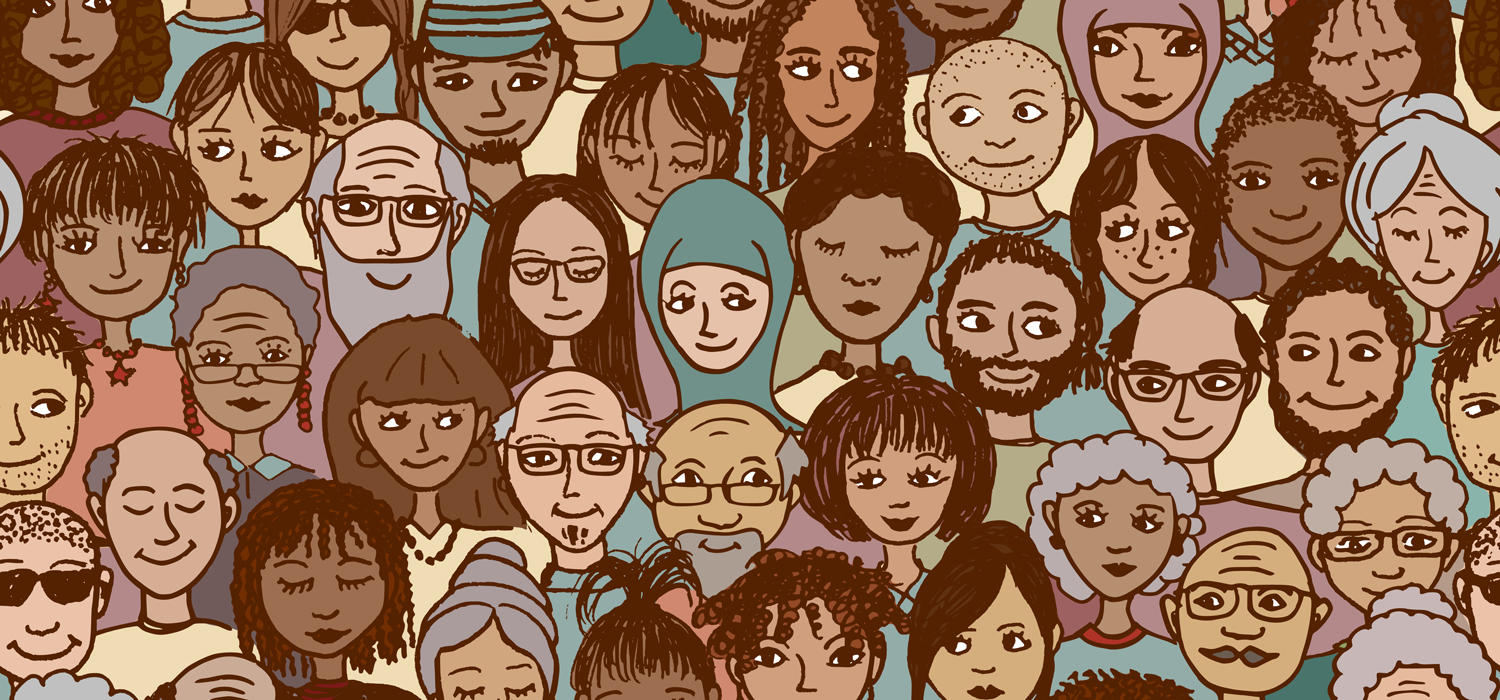


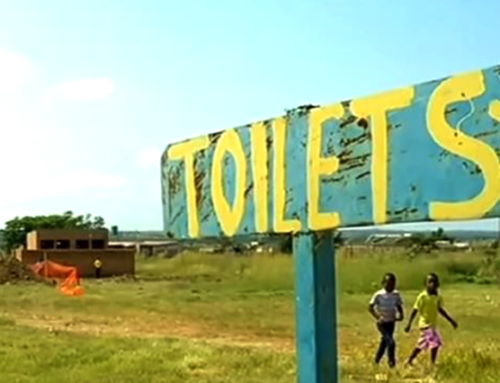
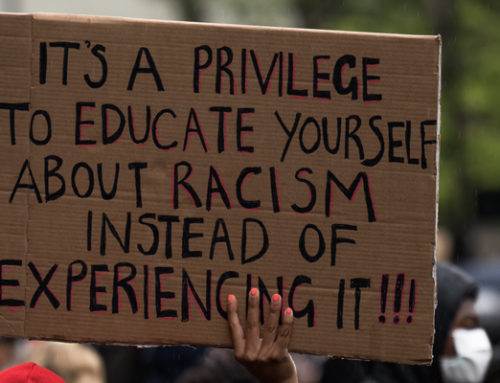
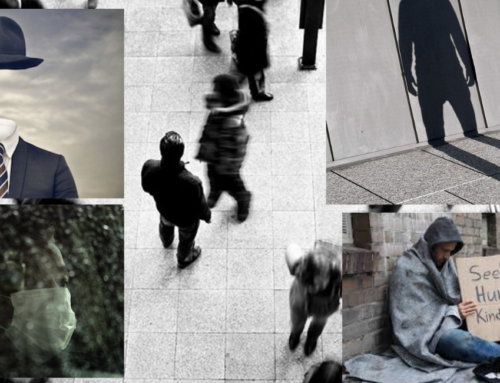
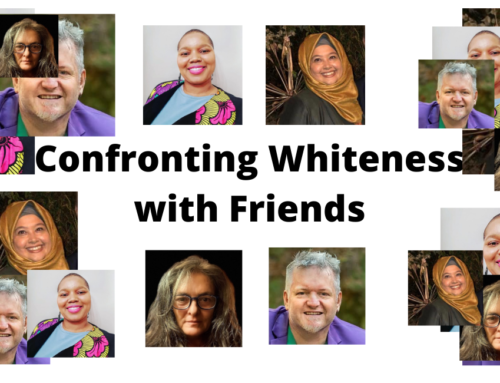
Seriously? You spend Saturday morning writing about this? Dude, I think you need help. You should rather practice what you preech and go to a shebeen for breakfast or hangout at the station and have coffee there instead of at your expensive coffee shops? Surely hypocracy and virtue signalling must fall? The only solution for SA is western cape independence. You see most of the tax money that leaves western cape never returns. So since western cape is a Dutch English colony, it was never owned by Xhosa or Zulu, it makes sense to become Independent. Zulu land is also going that route. It’s not a trains ash as SA is as big as Germany and France put together. Plenty of land and will work better in smaller countries. Borders are colonial anyway.
If by “expensive coffee shops” you mean my lounge in Diep River where i am writing this now [yesterday i happened to be at Mugging Bean drinking bottomless coffee so that would apply a little more] then yes. The fact that your ip address is coming in as the same as two ore more previous comments made by “different people” suggests that you might be the one needing to look in the hypocrite mirror. And you completely contradict yourself by talking about borders and then denying borders.
So ja, working towards a more inclusive South Africa on my Saturday morning at home feels like a much better life decision than whatever choices you are currently making…
Hi Brett,
Just fyi- At least one of your readers (should I say lurker since I rarely comment?) is also noticing the repetitive phrasing of your bridge-dwelling name-changing commenter above even without IP address confirmation. Some folks obviously have a bit too much time on their hands and too little mental stimulation. Dude needs to go find a class to take or something.
I appreciate reading how you all are dealing with/working towards racial equality over in S. Africa. I’m in Canada where we have our own varieties of segregation and inequality that need changing. Looking at similar issues but different situations helps me to think more creatively about ways to make things better. 🙂
Hey Natasha,
Thanks a lot – i learned so much in America about how i needed to be and what i needed to work on when we came back here so good to hear that some of our lessons and struggles are inspiring you in some ways – not sure there is a country in the world that doesn’t need work on these issues, but especially the big western powers…
All the best
love brett fish
Well I think borders are necessary don’t you? How would no borders at all work?
i have to admit i don’t know practically how it would work from here but here’s a thought – in America you have the different states which make up the United States and they function differently in some very real ways and similarly in some others. But they could as easily have been countries and not states with much tighter borders. Which all helps to show how constructed those boundaries are. If we did away with all country boundaries we would do away with a lot of negative competition and perhaps even some of the things that drive us to conflict and war although i believe our economics needs to be looked at in a much greater way to determine those things… But Africa could as easily have operated as a United States of Africa with each state having some sense of ownership and direction and a bigger continent structure to hold things in place – i wonder how the story would have changed if that had been the case, or if it still could be?
There are no borders within the EU and it works just fine.
Do you think a one world government is wise? Or not?
i think any form of government made up of people is going to be problematic…
The product of one’s labor is taxed. This means that for every 5 days one works, Monday and Tuesday’s are taxed. This means yoh work 2 days per week for nothing. You pay petrol, Tarik fees or whatever to get to work and work 8 or 9 hours that day. For this you receive nothing. The guvernment takes it. This is therefore 2 days of working as a kind of slave. I wouldn’t say it’s like a slave in chains, but the threat is there. If you don’t work, you end up starving, jobless or on the streets. This is a form of slavery. I know it’s difficult to comprehend as it’s all being disguised so well. But we effectively pay vat, rates. Licence and so on. It is at least over 50 percent. This works out to 25 years of being a slave. I know it sounds dramatic but it’s true. How is it not? We only get back maybe 10 percent of what we pay. Western cape pays over 60 billion rand and we get back maybe 30 billion. Not sure exact figures but there is a group Stop Coct or dear cape Town that gave these figures. Now if there were no government and no Sars, all this monye6woikd educate the people directly and within 5 years we’d have an army of scientists, engineers, doctors and other professionals. Government has always been a parasite on the people. If we coukd bypass that, we coukd fix south Africa. If we can’t, then more and more will get poor and government richer. That’s were we should focus. If someone could create a cell phone app where we pay say 20 percent vat and it all goes where needed. It could save us.
i think the problem is people [or from a spiritual perspective, what we would call sin] – as soon as you put people and money together it doesn’t seem to end well. So i’m not sure there will ever be a system that works well and we have to do the best we can do on the ground as the masses to actually make significant difference where we are.
I would like to ask a question based on the above:
Lets say money/credits or any form of money were SCRAPPED! Then we have a society based on deeds maybe? Or a society based on love? But how could something like that actually work?
You see I’ve been looking at farms and there are some where you can get 100 Hectares. Yes hectares!! For may a million rand. I can’t afford this but if we got say 100 people together we could do a commune where everyone pays R10 000. Then we have a communal farm and river, dam, borehole etc.. Each have their own house. That could work?
So basically small villages are doable. 100 people could easily be 200 with families, kids and soon enough 300 people on 100 hectares. That could be an awesome village.
Lets hear what other people think about this idea. Someone who has done it willing to share?
Ceres, Swellendam and many places have cheap farms.
Elaine
Thanks Elaine. My wife Valerie and some friends and i are actually dreaming and talking and thinking about this although you would probably need some form of capital to get started so might only be a likelihood for those with some form of wealth, but perhaps in the creation of it you could include those who don’t have monetary wealth and have them sharing in different ways. But the idea is for a farm with separate smaller dwelling places and a larger communal area where the land is worked for food and possibly jobs and there is a sense of shared community.
Yes, a big communal farm and then separate areas for the people’s houses and small gardens. The big communal area could grow more than enough for the whole village and even extra for trading with outside villages or towns. Its very doable if there are enough people willing to go for the idea. Some might not even live on the farm full time, but might come there for (semi working) holidays. For those who don’t have monetary wealth, they could contribute in some way by helping with the farming, growing vegetables and plenty else to do on a small farm.
There are some amazing farms out past Ceres, all over in fact. I was actually very surprises. You can get a flat in Bantry bay for R30 million to R100 million, some houses there go for R230 million!!!!!!!!!!!!!! Yes, I kid you not. How can a house go for that much? The view is the only thing really, but the traffic in summer is a nightmare. To see big farms of hundreds of hectares for only say R3 million is crazy. 10 families could contribute and buy that quite easily. Turn it into a farm to pay the bond, and the rest subsistence farming.
You see we are so conditioned into this city life of making money, renting expensive apartments, making money, office work, traffic that we are losing our spirits. Then one day we make money and by then we are 80 years old! So was it worth it?
I would love to hear other people who have experienced communes about the good and bad sides of it. What can be done and is it worth looking into or just a fantasy dream. I think its possible, so would love to hear or see a blog or youtube video on it happening here in SA.
Would it be possible to raise money through the Churches?
Regards,
Elaine
FATHER-DAUGHTER TALK
This is one of the best emails I have received. It gently explains the difference in thinking between people with opposite outlooks.
A young woman was about to finish her first year of college. Like so many others her age, she considered herself to be very liberal, and among other liberal ideals, was very much in favor of higher taxes to support more government programs, in other words redistribution of wealth.
She was deeply ashamed that her father was a rather staunch conservative, a feeling she openly expressed. Based on the lectures that she had participated in, and the occasional chat with a professor, she felt that her father had for years harbored an evil, selfish desire to keep what he thought should be his
One day she was challenging her father on his opposition to higher taxes on the rich and the need for more government programs.
The self-professed objectivity proclaimed by her professors had to be the truth and she indicated so to her father.
He responded by asking how she was doing in school.
Taken aback, she answered rather haughtily that she had a 4.0 GPA, and let him know that it was tough to maintain, insisting that she was taking a very difficult course load and was constantly studying, which left her no time to go out and party like other people she knew. She didn’t even have time for a boyfriend, and didn’t really have many college friends because she spent all her time studying.
Her father listened and then asked, “How is your friend Audrey doing?”
She replied, “Audrey is barely getting by. All she takes are easy classes, she never studies and she barely has a 2.0 GPA. She is so popular on campus; college for her is a blast. She’s always invited to all the parties and lots of times she doesn’t even show up for classes because she’s too hung over.”
Her father asked his daughter, “Why don’t you go to the Dean’s office and ask him to deduct 1.0 off your GPA and give it to your friend who only has a 2.0. That way you will both have a 3.0 GPA and certainly that would be a fair and equal distribution of GPA.”
The daughter, visibly shocked by her father’s suggestion, angrily fired back, “That’s a crazy idea, how would that be fair! I’ve worked really hard for my grades! I’ve invested a lot of time, and a lot of hard work! Audrey has done next to nothing toward her degree. She played while I worked my tail off!”
The father slowly smiled, winked and said gently, “Welcome to the conservative side of the fence.”
If you ever wondered what side of the fence you sit on, this is a great test!
If a conservative doesn’t like guns, he doesn’t buy one. If a liberal doesn’t like guns, he wants all guns outlawed.
If a conservative is a vegetarian, he doesn’t eat meat. If a liberal is a vegetarian, he wants all meat products banned for everyone.
If a conservative is down-and-out, he thinks about how to better his situation. A liberal wonders who is going to take care of him..
If a conservative doesn’t like a talk show host, he switches channels. Liberals demand that those they don’t like be shut down.
If a conservative is a non-believer, he doesn’t go to church. A liberal non-believer wants any mention of God and Jesus silenced.
If a conservative decides he needs health care, he goes about shopping for it, or may choose a job that provides it.. A liberal demands that the rest of us pay for his.
If a conservative reads this, he’ll forward it so his friends can have a good laugh. A liberal will delete it because he or she is “offended.”
Well, I forwarded it to you. …Your call.
To be fair it’s a completely subjective biased view against liberals… i don’t know that it’s objective at all. For starters the marks analogy doesn’t work for the economy cos it suggests those who got the money worked for it and those who didn’t are lazy which doesn’t take into account any systems and structures that lead some people being born into huge benefit and others being born into devastating poverty where the amount of work done in either space does not equate with money earned. It’s a very blind analogy.
The marks analogy I hear what Brett says. Some are born into wealth and that obviously gives a financial advantage. I remember a trust fun couple. Two people who married years ago. They were both from wealthy families. On the wedding date, they got a combined trust fund of R100 million. Paid in stages and interest so that they could not spend it all. I think it was a few hundred thousand per month allowance! Then when they get to 40 they get access to the trust. Shew that is an easy life said the lawyer.
If someone say was poor in the 90s and then started a company and worked hard and made money, then it would be different if they made money. But you might then say education was better for the one guy? But maybe it wasn’t. Some people are just smarter or more ambitious or have more energy. Lots of factors to consider.
I think one we know for sure where it’s unfair is that someone could be 6.8 and a rugby star and have it easy. Or a model who gets paid just to wear outfits.
Regarding apartheid, we can say that the black person who went to university who is 22, is indeed privileged. Same for a white person. A white or black person leaving a university should be mostly on equal footing. I’d say the black person in this case has more privilege as there is BEE and AA to help them. White people have to start their own companies.
So we can look at individual examples. Broadly stating that these days, that one is more privileged is not so accurate. In other words it’s hard to say if one benigitted or not due to apartheid in many cases. The education system today is dismal and worse than the “bantu education”. Doctors being allowed to write easy multiple choose exams is crazy.
i agree with a lot of what you say here – in principle BEE and AA should help black people to have an equal footing, not an advantage but in reality in the work place white people still seem to have the advantage. Statistics of percentage employment seem to back this up.
I think the only people BEE helped are the billionaires Rhamaposa and Motsepe and of course Guptas. The big problem with BEE is that sure, you can just get half of someones company for doing nothing, but then what? You need the expertise to carry that company. Rhamaposa kept quiet while the country was looted by the Guptas. Mostsepe through connections with cadres.
Of course there are whites that made money in apartheid too like the billionaires we all know about.
So where does that leave the middle class citizen and the poor?
One thing I want to hear your view on in a new thread. Cannabis. Legal for the rich to grow, but not the poor. Why?
i don’t really have too many opinions on cannabis to be honest.
I would also like to know about cannabis. Since you seem neutral or no opinion on it, would be great if you could research it and let us know. I mean didn’t Jesus or Moses have a burning bush or smoked weed?
Not sure why you expect me to do all the work on a topic that doesn’t interest me – go for it Brent! A burning bush is very different to a smoking weed!